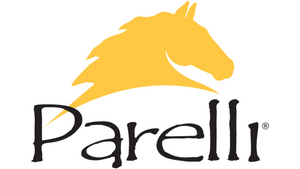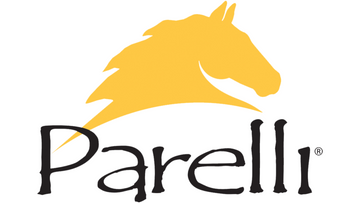Backyard Horse Keeping: Things to Consider Before You Dive In
bij Parelli Natural Horsemanship op Feb 23, 2022

What could be more idyllic than waking up to soft muzzles and hooves thudding around the pasture, really? Backyard horse ownership is not only amazing for you as the horse owner, but it also means that you can ensure the best possible care for your horses. But even if you have property, keeping your horses with you is not always the best fit. If you’re considering taking the plunge into backyard horse ownership, here are some factors to consider first.
Space
This is the first and most important consideration of them all, because horses need room to stretch their long legs. You can effectively turn out a horse on 1/10th of an acre, but this does not account for pasturing, and is still not necessarily ideal. You will need to check zoning within your city to see if you are allowed to keep horses on your property and, if so, how much land you need per horse. You probably want an acre at least per horse and—for exclusively grazing—you will need at least an acre and a half per horse.
You’ll also want to think ahead to where you can ride. If you don’t have an enclosed arena or trails, do you feel comfortable riding in your paddock? Is there an equestrian facility close enough for you to ride as often as you’d like?
Fencing
If you have fencing in place, you want to make sure that it’s horse friendly. Sturdy, wood-post fencing is ideal, but many horse owners opt for the more affordable metal posts with hot tape running between them. Cattle fencing is not the same as equine fencing, so if you have doubts, call in a professional to confirm and give you a bid if you need any updates.
Grazing
If horses live and graze on pasture, you will need one and a half to two acres per horse for adequate grazing during the seasons where the pasture grass is growing. Depending on the region you live in, you may need to still supplement hay in the winter and will need to section and rotate your pastures every week or so.
Socialization
Do you only have one horse? If so, you might consider if you have the room and the budget for a buddy horse or donkey. Some horses can live without companionship, but they are wired as herd animals to be around others. Goats also can make a good companion for horses, but even so, you’ll want to make sure you have time to spend with your horse regularly and can provide other toys in their pen to prevent boredom and stress.
Shelter
Whether you keep your horse in a pasture or a stall, you will want to provide relief from extreme weather (hot and cold). A 12x12 stall is usually adequate space to keep a horse enclosed overnight in a barn. In the pasture, you can provide a lean-to with a roof to provide shade and a place to feed grain and hay. This should also be slightly elevated from the rest of the pasture if mud is an issue during certain seasons.
Trailering
If you keep horses in your backyard, you will most likely need to trailer them from time to time to go on trail rides or visit the vet. If you don’t have a trailer of your own, you might consider getting a trailer for those occasions if you don’t have a friend or trailering service nearby that can haul your horses.
Storage
When keeping your horse in your backyard, you’ll need a place to store tack, grain, and hay (if you’re not exclusively pasture feeding). Having this enclosed structure will help prevent rodents and mold from ruining your horse’s food and tack. This could be a big up-front investment if you don’t have this on your property already.
Time + Vacation
If you’re boarding now, the biggest shift you’ll notice right away is the time you need to allocate towards feeding, turning out, and mucking your horse’s stall or paddock. If time is a constraint, you and your horse might be happier staying in boarded care. Furthermore, you’ll need to find someone to take care of your horse(s) when you head out of town.
Manure Management
Large animals mean large amounts of excrement. Do you have space to pile up manure (preferably a decent distance from your house)? Likewise, do you have a plan to either spread manure (for example, with a tractor) or is there a business nearby that can remove it for you?
Prepare Your Partnership for Backyard Horse Keeping
Though it requires some extra logistics up front, being close to your horse at all times can be incredibly beneficial for your partnership. Instead of driving out to the barn and planning half a day to work with your horse, you can simply walk outside and ride, play the Seven Games, or simply spend time observing one another.
Do you wonder if you and your horse’s partnership is ready for backyard horse ownership? The Ultimate Horse Behavior Video Series is a collection of videos that will help you build positive patterns with trailer loading, barn manners, and on the trail. With this series, you will learn how to read your horse’s body language and create solutions to the obstacles you face while developing a partnership. You will understand what your horse is thinking and feeling so that you can communicate more effectively with him in any situation. Join Pat Parelli as he guides you through practical learning sessions that anyone can immediately apply to their partnership journey with their horses. These practical and lessons will help you intuitively understand how to deal with common situations of handling your horse when you’re on your own.







